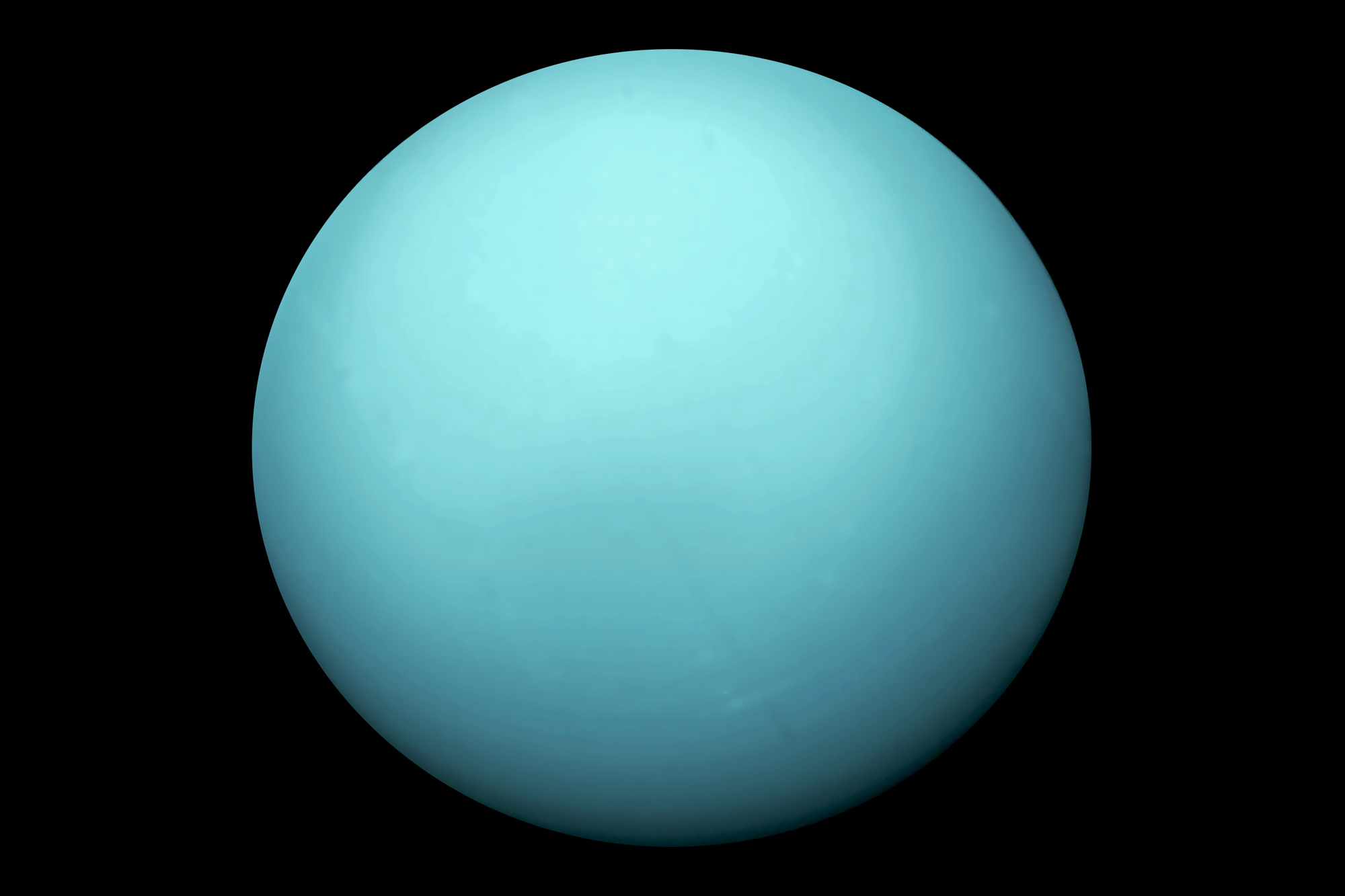Seventh From The Sun
On this day, in 1781, astronomer William Herschel discovered Uranus. It had been seen before, but Herschel was the first to officially observe and report on it. Not that he understood what he saw. He figured it was a comet. It took other astronomers to study its orbit and determine it was actually a planet.
Nevertheless, Herschel so impressed the people of his day that King George III granted him an annual stipend of 200 pounds. A new planet was a pretty big deal, after all. Uranus is the one that comes after Saturn, and Saturn had been spotted by human eyes since before written history, and the ancients knew it wasn't just another star.
Uranus is named after the Latin version of the Greek god who was the father of Cronos--Saturn to the Romans--and grandfather of Zeus--Jupiter to the Romans--so I think you get the pattern. You wouldn't think the seventh planet would fire the imagination as much as, say, Mars or Jupiter, but I'm guessing it's the most spoken about planet outside Earth, especially among schoolboys.
Modern research suggests Uranus smells like rotten eggs.


4 Comments:
Well done, sir, well done.
That comment cost me six fucking verify screens, not including fucking repeat photo blocks.
I'm going to start setting off bombs.
I wish we didn't need any verification, but without it we'd be bombarded with robo-comments.
When Uranus is at its closest to Earth, someone with good vision can see it in a clear night sky (away from city lights, of course).
Yet it appears that no ancient cultures realized it was a planet. I guess it's just so dim (and "moves" so slowly) that nobody noticed it.
Post a Comment
<< Home